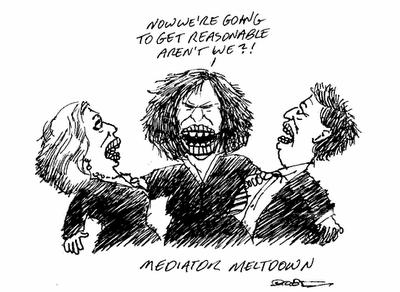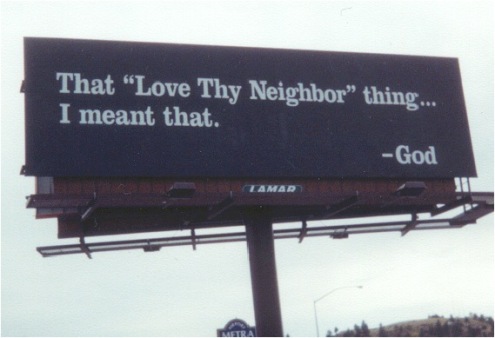Please read part 1 first
3. Not using the world’s methods
"Never pay back evil for evil to anyone. Respect what is right in the
sight of all men. If possible, so far as it depends on you, be at peace with
all men. Never take your own revenge, beloved, but leave room for the wrath of
God, for it is written, "VENGEANCE IS MINE, I WILL REPAY," says the
Lord. "BUT IF YOUR ENEMY IS HUNGRY,
FEED HIM, AND IF HE IS THIRSTY, GIVE HIM A DRINK; FOR IN SO DOING YOU WILL HEAP
BURNING COALS ON HIS HEAD." Do not
be overcome by evil, but overcome evil with good. " Romans 12:17-21
Paul points out another issue that is associated with Jesus’
command to love all: that we are not to
use the methods of the world against those who do us harm. It is perfectly natural to want to do harm or
violence to those who do harm or violence to us. As people of Jesus, those guided by the
Spirit of God, we are to be led by peace and not harm. To “do evil” is to harm another, and that is
not what we are to do. Instead of acting
with violence or inflicting harm, we are to do good.
4. Attitudes of the Life in the Spirit
It is interesting that Paul makes two lists in Galatians 5:14-23 that are
frequently quoted: the works of the flesh and the gifts of the Spirit. But a careful examination of the two lists
show that, more than anything else, Paul is contrasting those who increase
conflict with those who are making peace in community. I’ll give each list, with just a little bit
of editing (check it out yourself in Galatians 5, please), and you can see it
yourself:
Introduction (vv.14-15)—“The whole law: Love
your neighbor as yourself. The
opposite: biting and devouring each other.”
Works of the flesh (v. 19-21): These are acts that increase
conflict and separation
Enmities—Creating enemies by harming others or accusing
Strife—Stirring up arguments
Jealousy—Desiring what another has
Outbursts of anger—Punishing without control
Disputes—Irrational arguments
Dissensions—Separating from others
Factions—Creating groups in opposition to each other
Envying—Desiring another’s respect
Those who practice such things will not inherit the kingdom of God. To participate in such actions of judgment is to separate oneself from the
life of Christ
Fruit of the Spirit (v: 22-23): There is only one result of a life in
the Spirit—love. The rest of the list is
describing how love is to be seen in God’s community.
Love—To think of another’s need before one’s own
Joy—Rejoicing in the presence of others’
Peace—Applying
the greatest effort to have peaceable relations
Patience—To not be upset at other’s failings or irritable actions
Kindness—To see the other person’s need and to assist them to meet
it
Goodness—To act for the other’s benefit
Faithfulness—To keep one’s promises to others
Gentleness—To not create drama or judgmentalism
Self-control—Not
being guided by the works of the flesh (above)
Against such things there are no law.God’s law never opposes
love. We should never apply a law in our
congregations that opposes love.
Overall, we can see a distinct philosophy of how we are to deal with the
belligerent or violent in our congregations.
First of all, we need to protect our people, but we can exclude no one
from that protection, even the one who is being violent. Secondly, we are to find methods to protect
all without causing harm to any.
Thirdly, in order to benefit others, we might have to make sacrifices
ourselves, which is part of what we accept if we take on leadership in the
church.
So the natural question is "How
can we possibly protect all people when there is violence? How can we prevent harm from happening?" The first, most basic principle is that we
need to realize that we cannot, ourselves, prevent all harm to those under us. Everyone, ultimately, is in the hands of God,
and there can and will be harm done at times.
For this reason, we must pray for protection for those under our care.
But there are things we can do, in
the midst of being Christ-like that would provide protection, while not causing
to harm to anyone. In the next couple posts are step by
step ways to prevent violence in our places of worship and service, where we
can practice our love of our neighbor.



























